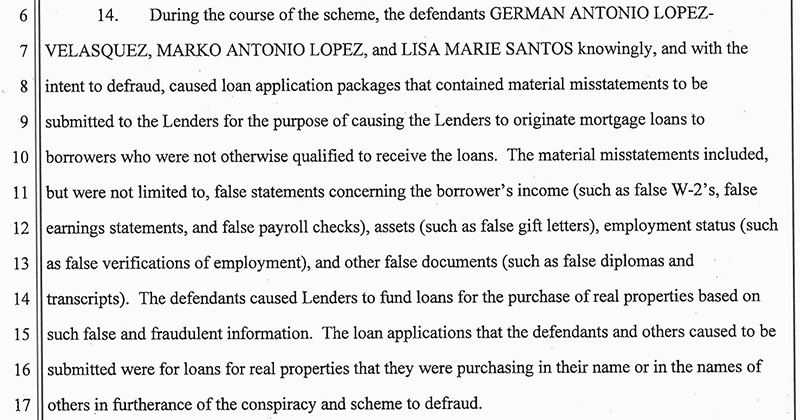Why Haven’t Loan Officers Been Told These Facts?
Numerous stakeholders are in various stages of targeting First-Generation Homebuyers with federal and local initiatives to aid households that may be disadvantaged due to a lack of “generational wealth.” Assorted “First Generation” federal legislation has been in the works for over a year (e.g., S.3930—Downpayment Toward Equity Act of 2024, H.R. 4231—Downpayment Toward Equity Act of 2023).
Providing additional down payment grants to disadvantaged households is a noble idea, but with the abundance of down payment assistance funds available, is this a good or necessary step toward better homeownership opportunities? Wouldn’t increasing demand for housing exacerbate the affordable housing issue even more? The answer isn’t more buyers; it is more housing stock.
In the case of S3930, sponsored by Senator Raphael Warnock of Georgia, the law generally reserves down payment grants for “socially and economically disadvantaged” persons. Socially disadvantaged (Black, Hispanic, Native American, Asian American, or any combination thereof) means racially or ethnically disadvantaged, as Senator Warnock sees it. Economic disadvantage is household income under 120% of the area’s median income or 140% in high-cost areas.
Senator Warnock’s Bill is a short-sighted, problematic solution. It is doubtful the Bill will pass without significant amendment, especially given the poorly drafted legislative language—a potential regulatory and policy nightmare. However, the industry should anticipate further developments in First Generation Homebuyer subsidies, albeit with better legislative drafting.
Excerpts from Senator Warnock’s Bill S3930:
A bill to provide downpayment assistance to first-generation homebuyers to address multigenerational inequities in access to homeownership and to narrow and ultimately close the racial homeownership gap in the United States, and for other purposes.
(11) SOCIALLY AND ECONOMICALLY DISADVANTAGED INDIVIDUAL.—The term “socially and economically disadvantaged individual” means an individual who meets the following requirements:
(A) SOCIAL DISADVANTAGE.— (i) IN GENERAL.—The individual is a member of a socially disadvantaged group, whose members have historically been subjected to racial or ethnic discrimination within the United States because of their identity as members of such group without regard to their individual qualities.
(ii) PRESUMPTION; REBUTTAL.—An individual identifying as Black, Hispanic, Native American, or Asian American, or any combination thereof, shall be presumed to be socially disadvantaged for purposes of clause (i). Such presumption may be rebutted with credible evidence to the contrary.
(iii) BURDEN OF PROOF.—An individual who does not identify as described in clause (ii) shall be required to establish individual social disadvantage for purposes of clause (i) by a preponderance of the evidence.
(1) INCOME.—The household of the homebuyer has an income that does not exceed—
(A) 120 percent of median income for the area (as determined by the Secretary) within which—
(i) the eligible home to be acquired using such assistance is located; or
(ii) the place of residence of the homebuyer is located; or
(B) in the case of a homebuyer acquiring an eligible home that is located in a high-cost area, as determined by the Secretary, 140 percent of the median income for the area within which the eligible home to be acquired using such assistance is located.
(d) Amount.—A grant of assistance under this Act—
(1) may be provided on behalf of any qualified homebuyer only once; and
(2) may not exceed the greater of $20,000 or 10 percent of the purchase price in the case of a qualified homebuyer, not to include assistance received under subsection (c)(2)(C) for disability related home modifications, except that the Secretary may increase such maximum limitation amounts—
States on the Move
There is no dominant federal first-generation homebuyer program yet, though the federal stakeholders are laying the groundwork for program implementation. Some states (Colorado, Maine, Minnesota, New Jersey, Vermont, Oregon, Rhode Island, and Massachusetts) have created mechanisms to fund prospective home buyers meeting the “First Generation Homebuyer requirements.” While stakeholders wrestle with the scope of these proposals, there is a lack of continuity in the nomenclature related to who is eligible and who is not. See FNMA’s helpful Factsheet.
Local Initiatives
Published on July 1, 2024 by Colorado Housing and Finance Authority
(DENVER) – Colorado Housing and Finance Authority (CHFA) is proud to announce a new program to support Coloradans who have not previously owned a home, and whose parents or guardians were not homeowners. CHFA FirstGenerationsm offers up to $25,000 in down payment assistance and a fixed-rate 30-year home mortgage loan to eligible borrowers. The program also serves those raised in the foster care system who have not previously owned a home.
“The CHFA FirstGeneration program is aligned with CHFA’s vision that everyone in Colorado will have the opportunity for housing stability and economic prosperity,” said Cris White, executive director and CEO of CHFA. “Homeownership is one of the primary ways that households build wealth and pass wealth from one generation to the next. This program is designed to provide an opportunity for more Coloradans to establish an intergenerational legacy of homeownership.”
Wealth disparities among historically underserved populations persist today and are evident in homeownership rates. Data published earlier this year by the National Association of REALTORS® indicates that 70 percent of white Coloradans own their home, compared with 42 percent of Black and African American Coloradans and 57 percent of Hispanic Coloradans. Underserved populations are also disproportionately cost-burdened, spending a greater percentage of their income on housing.
“CHFA’s investment in affordable and responsible homeownership includes a commitment to providing equitable homeownership resources,” said Dan McMahon, CHFA director of home finance. “As we seek to increase homeownership rates for underserved populations, we recognize that those without a family history of homeownership often face significant barriers to achieving their goal of owning a home. Our hope is that the CHFA FirstGeneration program can expand opportunities and access for these homebuyers.”
Down payment assistance provided through CHFA FirstGeneration is offered as a second mortgage paired with a CHFA home loan, repayment of which is deferred until certain events such as the sale or refinance of the home. Eligible borrowers will work with their lender to submit an affidavit attesting to their first-generation homebuyer status. Additional details and a list of participating lenders are available at chfainfo.com/firstgen and in Spanish at chfainfo.com/hogar-firstgen.
FNMA First Generation Homebuyer Fact Sheet
Colorado HFA Link
Minnesota HFA
S3930 Text
Do you have a great value proposition you’d like to get in front of thousands of loan officers? Are you looking for talent?


BEHIND THE SCENES-Third Real Estate Professional Pleads Guilty to Mortgage Fraud Scheme
U.S. Attorney’s Office, Eastern District of California
Sentencing in September
FRESNO, Calif. — German Antonio Lopez-Velasquez, 55, of Modesto, pleaded guilty today to conspiring to commit bank fraud, U.S. Attorney Phillip A. Talbert announced.
According to court documents, German Antonio Lopez-Velasquez, a real estate agent, worked with Lisa Santos, 48, of Long Beach, a mortgage loan officer, and Marko Antonio Lopez, 27, of Modesto, a real estate agent and notary public, to obtain fraudulent mortgage loans for properties based in Stanislaus, San Joaquin, and Santa Clara Counties, and elsewhere. The three defendants used false documents, fictional companies, and fictional individuals to obtain mortgage loans for borrowers who were not qualified to receive loans.
“The integrity of the FHA loan program is essential to helping hard working citizens realize the American dream of homeownership,” said Special Agent-in-Charge Mark Kaminsky with the U.S. Department of Housing and Urban Development, Office of Inspector General. “HUD OIG will continue to work with its prosecutorial and law enforcement partners to vigorously pursue those who seek to jeopardize this program and the health and stability of our nation’s housing market.”
Santos pleaded guilty on May 13, 2024, to conspiring to commit bank fraud, and is scheduled to be sentenced on Sept. 30, 2024. Marko Antonio Lopez previously pleaded guilty and was sentenced on April 1, 2024.
Lopez-Velasquez is scheduled to be sentenced on Sept. 9, 2024, by U.S. District Judge Jennifer L. Thurston. Lopez-Velasquez faces a maximum statutory penalty of 30 years in prison and a $1 million fine. The actual sentence, however, will be determined at the discretion of the court after consideration of any applicable statutory factors and the Federal Sentencing Guidelines, which take into account a number of variables.
This case is the product of an investigation by the Federal Housing Finance Agency – Office of Inspector General (FHFA-OIG), the U.S. Department of Housing and Urban Development – Office of Inspector General (HUD-OIG) and the U.S. Postal Inspection Service (USPIS). Assistant U.S. Attorney Jeffrey A. Spivak is prosecuting the case.
Tip of the Week – Join The Loan Officer School for 2024 CE
Join us for 2024 continuing education classes.
- Learn what not to say about HPA-PMI cancellation.
- Discover the truth about non-HPA MI cancellation: It is not what you think it is.
- Delivering appraisal copies three days before consummation may be too late under Regulation B.
- § 1002.14(a)(2) Timing requirements for disclosing the applicant’s right to receive a copy of all written appraisals – You may have it wrong.
If you need to attend any state-required CE, please call today! (866) 314-7586
Sign up for our webinars: 8-Hour CE – National requirement
If you need to attend the state-required CE, please call today! (866) 314-7586
